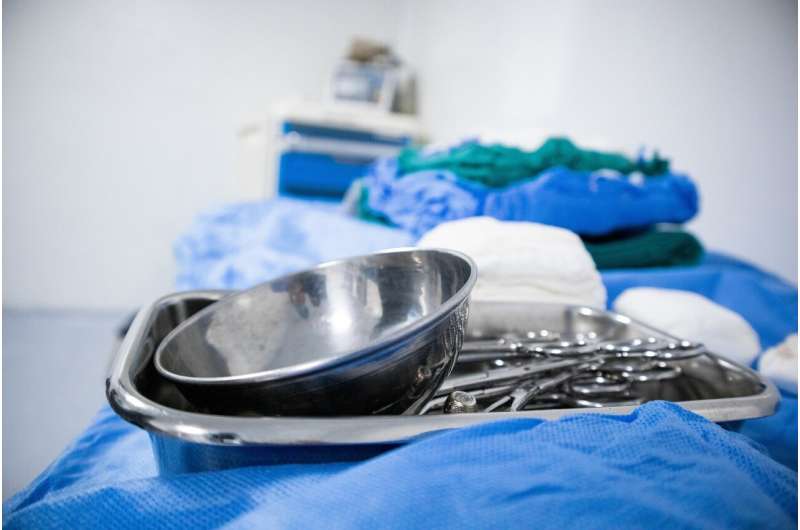This article has been reviewed according to Science X's editorial process and policies. Editors have highlighted the following attributes while ensuring the content's credibility:
fact-checked
peer-reviewed publication
trusted source
proofread
Study finds better outcomes for recipients of lungs from hospital-based donor care units compared to independent units

A new study by Penn researchers examined, for the first time, the differences in lung transplant graft outcomes from organs recovered from the two types of deceased organ donor care facilities operating in the United States. The research, published in JAMA Network Open, offers insights that could improve the organ donation and transplantation process for patients across the nation.
In the U.S., deceased organ donors are traditionally cared for in hospitals, which provide intensive care and testing needed to rehabilitate organs, identify transplant recipients, and perform organ recovery surgeries.
Over the past two decades, some donors have been transferred from hospitals to donor care units (DCUs), which provide similar services but focus solely on deceased donors. Two types of DCUs currently operate in the US: independent—located outside of acute-care hospitals—and hospital-based.
Researchers analyzed lung donation rates and lung transplant survival outcomes from almost eleven thousand deceased donors who underwent organ recovery procedures between April 2017 and June 2022.
The researchers hypothesized that lung transplant survival would not significantly differ between organs recovered from donors managed in these two types of units. However, the study showed that while independent donor centers generally saw higher donation rates, recipients of lungs from hospital-based DCUs had longer survival.
"These insights could drive improvements in organ donor management practices nationwide, ultimately enhancing the quality and availability of donated organs," said Emily Vail, MD, MSc, an assistant professor of Anesthesiology and Critical Care in the Perelman School of Medicine at the University of Pennsylvania and Senior Fellow at the Leonard Davis Institute of Health Economics, who led the study.
The study underscores that the care system for deceased organ donors is evolving, with the potential to significantly improve organ quality and increase the number of available organs per donor.
Vail's research is particularly crucial given the fragile nature of lung tissue and the stringent criteria for lung donation. Only about 20% of deceased donors are eligible to donate lungs, making efficient and effective donor management practices vital.
The Gift of Life Donor Care Center at Penn Medicine, established in late 2022, is one of at least 15 hospital-based DCUs currently operating in the United States. Gift of Life transplant coordinators work with a multidisciplinary team of critical care physicians, nurses, respiratory therapists and pharmacists to provide specialized care for deceased organ donors diagnosed with brain death and authorized to donate organs, while providing support to their families.
The Gift of Life Donor Care Center serves hospitals and donor families across the eastern half of Pennsylvania, southern New Jersey, and Delaware.
More information: JAMA Network Open (2024). jamanetwork.com/journals/jaman … tworkopen.2024.17107





















